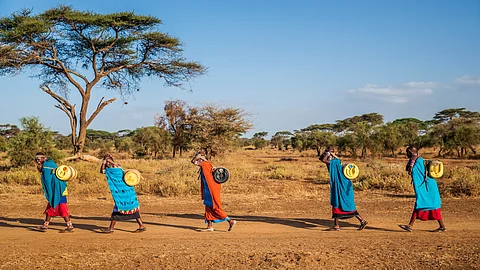

A recent study has revealed that women from the world's least developed countries (LDCs) face significant challenges in achieving adequate representation in global climate negotiations.
The research, conducted by the International Institute for Environment and Development (IIED), explores the factors behind the low participation of women in the United Nations Framework Convention on Climate Change (UNFCCC) discussions, specifically focusing on delegates from the 45 LDCs.
Since 2008, women have accounted for roughly one in three UNFCCC delegates, yet gender parity remains a distant goal, with only about 10 per cent of heads of delegation being women.
The report highlights that LDCs, in particular, show lower rates of female involvement compared to other regions. The research aims to explore the factors that contribute to this gender imbalance through surveys, interviews, and case studies from Rwanda, Mozambique, and Sierra Leone.
The study applies a gender needs framework to examine women's participation in UNFCCC negotiations across four domains: governance, gender-based education and assets, gender-based rights and participation, and leadership and decision-making.
Around two-thirds of the 143 survey respondents (64 per cent) reported that barriers prevent women from taking active roles at the talks, while a similar proportion (66 per cent) believed women were underrepresented at the highest levels.
The study identifies several challenges, including a lack of women in leadership roles within the climate and environmental sectors, restrictive laws, cultural practices, and institutional barriers.
Additionally, limited access to quality education, training, healthcare, financial resources, and technology further hinders women's participation.
Nearly half (48 per cent) of respondents felt their governments were not doing enough to improve female representation within their negotiating teams.
However, the report highlights positive steps taken by countries such as Rwanda, Mozambique, and Sierra Leone. Mozambique is addressing the lack of qualification criteria for negotiators by developing criteria that prioritise women in the selection process. Rwanda has institutionalised a comprehensive approach to gender equality and women's empowerment in the UNFCCC framework, while Sierra Leone has introduced a transparent nomination process.
The report suggests several actions to improve women's representation, including enhancing policy and institutional support for women's participation, creating targeted funding mechanisms, developing selection criteria for delegations, offering gender-focused training, refining UNFCCC session logistics, providing childcare services, and increasing funding for organisations that support capacity-building for women and youth negotiators.
These recommendations aim to foster more inclusive and diverse representation in climate negotiations, ensuring that women have a stronger voice in shaping global climate policies.